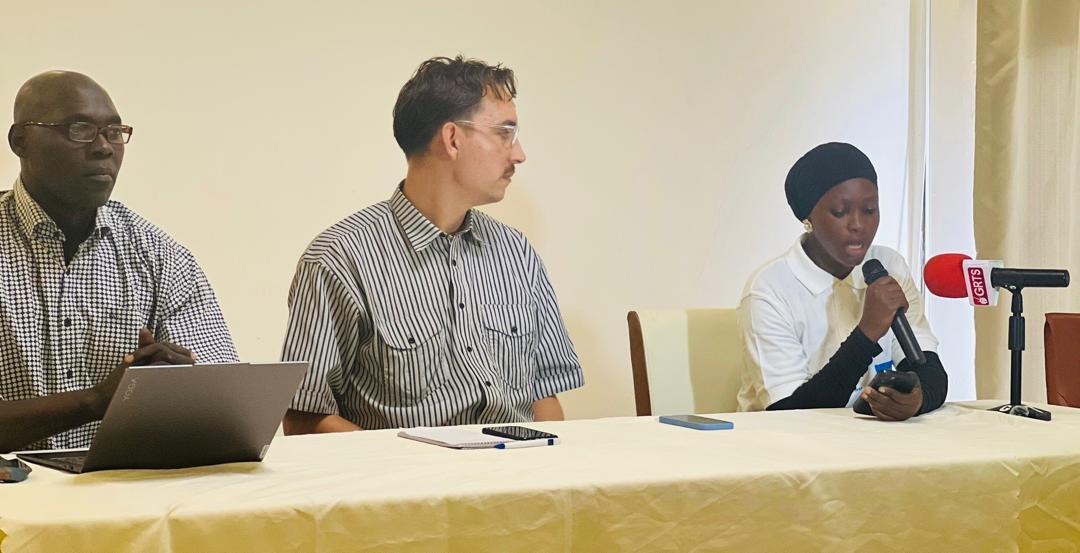Africa-Press – Gambia. The Interim Director of Operations at the National Disaster Management Agency (NDMA), Momodou Bk. Ceesay, has said that disaster continues to create havoc in our households and communities.
He made the statement during a five-day workshop of training of trainers on climate change and environment which was designed for young leaders.
The event is organised by Clean Earth Gambia, in collaboration with UNICEF Gambia through Children and Youth Champions Climate Project which seeks to support environmental protection and sustainable practice with a key focus on engaging children in schools and communities.
Presenting at the workshop, Mr. Ceesay asserted that the training was not just a workshop but a call to action and to build resilient communities, protect the environment and prepare for the uncertainties.
“Disaster preparedness involves planning and equipping individuals, communities, organizations, and governments to handle potential disasters before they happen,” he said.
According to him, disaster response, focuses on the immediate actions taken during and after disaster to save lives, reduce harm and assist those affected. He says disaster does not discriminate instead it gives adequate warnings before striking. “But sometimes it strikes without much warning, leaving behind trails of significant destruction and hopelessness. With knowledge, proper planning, and effective community engagement targeting children and young people can transform vulnerability into strength,” he suggested.
He emphasized that environmental protection was not a luxury but a necessity.
However, healthy ecosystems like wetlands and forests act as natural buffers against floods and storms. He buttresses that the health of our ecosystems directly impacts the frequency and severity of disasters.
“Deforestation, pollution, and climate change are not distant threats, they are realities we must confront today,” he stated.
For her part, the Assistant Communication Officer of Clean Earth Gambia, Rohey Ngum reiterated that the training was not just for individuals, but for a community united by a common purpose.
This, she says is to learn, to grow, and to act in the face of climate change and environmental challenges which are not far away.
She stresses that rainy seasons are changing, and that is affecting farmers’ ability to grow enough food.
For More News And Analysis About Gambia Follow Africa-Press






